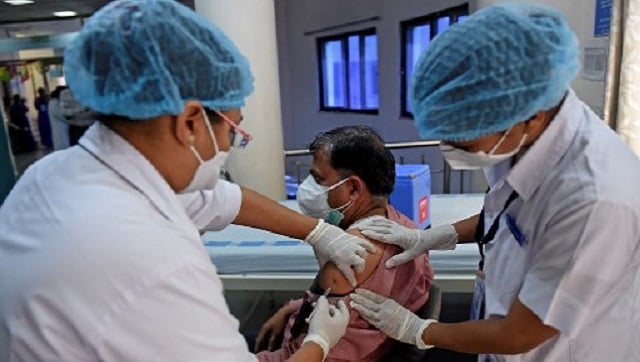Global Fame And Recognition in Offing for MP’s Handmade Dolls from Tribal Heartland Jhabua
For decades, the most backward Bhil and Bhilala communities of Jhabua, the tribal heartland of Madhya Pradesh, have been making ‘Adivasi gudiya’ (tribal dolls) of fabric and iron wires. The ethnic art form is now being considered for the prestigious Geographical Indication (GI) tag which will help it earn global fame and safeguard the communities’ intellectual property rights.
Besides being an assurance of quality and attributes specific to a region, the GI tag will also enable the product’s original makers to prevent its use by a third party who does not belong to the particular region and does not have the required quality and standards which are trademarks of this particular product.
Located along the borders of Gujarat and Rajasthan, Jhabua is known for this art form, locally popular as ‘Adivasi Gudiya Hastshilp’. The dolls are examples of an assimilation of Rajasthani puppet-making and Gujarat’s ethnic art of beads and jewelleries. The dolls have sharp facial features, kohled eyes, traditional bindis and heavy ethnic wear and carry traditional weapons such as bows and arrows, and sickles, and ethnic musical instruments like dholak and traditional transportation like bullock carts.
Made out of cloth, cotton and wires, these dolls have been made by locals of Jhabua for decades, but a private enterprise, Shakti Emporium, floated by late Uddhav Gidwani, has been getting these handmade artworks for around 35 years.
Gidwani, who was an accountant at a local training–cum-production centre, in Jhabua, about 350km from Bhopal, had learnt making these dolls at the centre and partnered with two women artisans from the centre to start an emporium. So far, the centre has trained over 500 women and has employed about a dozen-and-a-half women on permanent basis to produce these artefacts in Jhabua, said Gidwani’s son Subhas, who now runs the organisation. While centre has closed down, the private emporium continues to produce and sell the dolls.
“Made of cloth, wire and fabric, these dolls are not prone to damage and lasts for years,” Subhas told News18 over the phone. Dolls in the form of tribal couples and dancing couples from local Bhagoriya festival are quite popular among buyers, said Gidwani who claimed these artworks symbolise the region’s tribal culture.
“We go across the country and exhibit our art with our artisans. Recently, we had taken part in the Adi Mahotsav organised in New Delhi,” said Subhas, adding the GI tag will not only bring fame for this product, but also generate job opportunities for the tribals. A pair of doll is approximately priced Rs 350, while the rest depends upon the shape and size of the product, he added.
Recently the ‘tribal doll’ found itself among a list of 53 products of tribal origin that are being promoted for GI tagging by the Tribal Co-operative Marketing Development Federation (TRIFED) which functions under the Tribal Affairs ministry. The application for GI tag was filed two months ago, said Subhas.
The government is also doing its bit to promote these dolls by exhibiting them at fairs across the country, including Delhi (Pragati Maidan), Jaipur, Khajuraho, Hyderabad, Rohtak, Bengaluru, Kolkata, Raipur, Chandigarh, Haryana, Bhopal.
In a press release, TRIFED said, “In light of the COVID-19 pandemic that has thrown unprecedented challenges, the focus has shifted towards “vocal for local” and building an “Aatmanirbhar Bharat”. India has a rich legacy of indigenous products, be it handicrafts, handlooms, and other produce. As the national nodal agency, TRIFED has been working extensively to help market and promote the indigenous products that tribal groups across the country have been producing since centuries. It is in this context, that GI tagging has acquired even more of an importance.”
Other departments and institutes have are involved in the process are Lal Bahadur Shastri National Institute of Academy, Ministry of Culture, Department of Promotion of Industry and Internal Trade (DPIIT), Ministry of Commerce; India Posts; Ministry of Tourism and Office of the Prime Minister.
GI tags in MP
Chanderi saris, leather toys of Indore, Bagh print, Maheshwar saris and fabric, bell metal ware of Datia and Tikamgarh, Kadaknath black chicken meat of Jhabua and Ratlam sec (snacks) are some of the products that have received GI certification in Madhya Pradesh.
Kadaknath chicken of Jhabua
This chicken has a unique black colour skin, blood and meat. Besides having immunity boosting features, the meat is low on fat, high on protein and is beneficial for those suffering from heart, breathing and anaemic ailments. Eggs and chicken of this breed fetch almost 10 times the normal ones. Kadaknath chicken from Jhabua district got GI tag in 2018.
Indori Poha, Morena Gajak also in line for GI tag
Indore’s mouth-watering ‘poha’ and Morena’s famous sweet dish ‘gajak’ could soon attain global fame with the state government applying for GI tags for these products. The state government has also applied for GI certification of ‘kodo and kutkii, the high-nutrition varieties of millets mostly grown by local tribals, and ‘panja dari’, carpets woven in a particular pattern.



